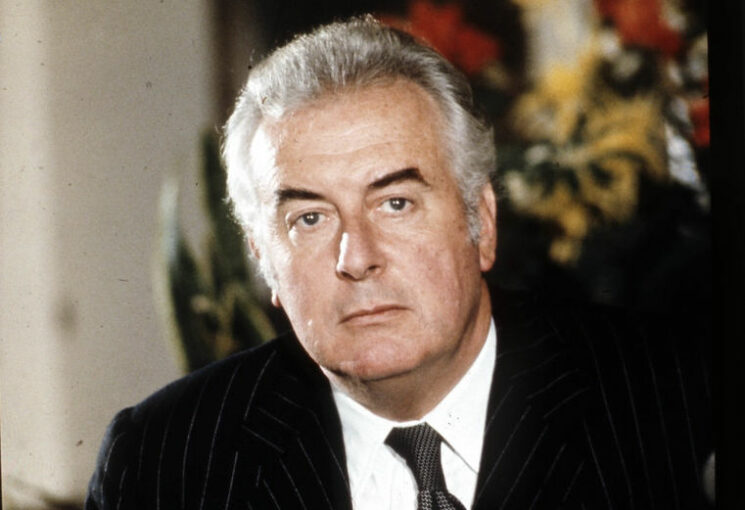Forty-nine years ago, the Australian Prime Minister and the President of Indonesia met in a tiny sugar town in North Queensland and tried to convince the world they were discussing beef cattle exports, and not the invasion of East Timor.
They never fooled the locals who didn’t see much action on the cattle front, just a series of closed meetings with high security at low-profile locations. But the ploy kept a team from the Canberra Press Gallery chasing their collective tails for several days.
It should have been the answer to a journalist’s dream. One of those rare opportunities to “record the first rough drafts of history,” but it ended up being the biggest media farce I ever experienced.
It also remains a mystery because many of the questions raised that week have never been answered. Did Gough Whitlam sell out East Timor? Is it okay for an Australian prime minister to lie publicly if it’s in the national interest?
I’m in no position to offer definitive answers, but I can tell you what I saw and heard while covering the event in the first week of April 1975.
The plan was for Whitlam’s meeting with President Soeharto to be low key. No twenty-one-gun salute in Canberra for the visiting head of state, no dinners at Kirribilli House, no invitation to address Parliament and certainly no probing questions at national media conferences.
East Timor was in turmoil. The fiercely anti-communist Indonesians, fearing a socialist or even communist state being created on their doorstep, were poised to invade. But we were being told their President just wanted to have a cuppa and a chat with Gough in the Townsville Travelodge, before visiting a farm at Brandon about one hour’s drive south of the city to inspect a prize bull. There was also talk of a quick trip to Magnetic Island to cuddle a koala.
I went to the airport to cover the arrival for Townsville ABC News, and picked up a Sydney current affairs officer who was travelling with the group. Whitlam’s speech writer, Graham Freudenberg, also hitched a ride in our taxi.
When we reached the Travelodge, the entrance was blocked by placard waving, chanting protesters, whose main theme was “Hands off Timor.” Freudenberg suddenly became anxious, and asked if I knew who had organised the protest.
I told him I could identify several high-profile communists from the trade union movement, Fred Thompson, Col Emery, and old Bill Irving, along with stalwarts from the far left of his own party.
Freudenberg had clearly been expecting a trouble-free visit away from the big Sydney, Melbourne and Canberra protests that were supporting independence for East Timor under the leftist revolutionary party of Fretilin.
So, I told him that if the PM’s advisors had been trying to avoid encounters with the far left by coming north to so-called redneck land, they had been misinformed. History showed that North Queensland could be surprisingly politically diverse and had once elected a Communist Party member to State Parliament.
Like the protesters, the media, both the Canberra pack and we locals, were kept away from the VIPs. There were the usual well-crafted releases, but the subject matter was controlled. Oh yes, the good news from the PM’s PR people was that visuals, photos, and TV footage, would be allowed on the farm visit.
Away from their native soil in the Canberra Press Gallery, the elite of my profession seemed strangely disempowered and searched frantically for different leads and slants on farmed-out joint releases.
Of course, they were astute enough to sense Timor must have been on the hidden agenda, they just could not break through the facade that Whitlam and his minders had erected. The spin worked.
Not long after, Whitlam was dismissed by the Queen’s man in Canberra, Governor General Sir John Kerr, and five Australian journalists were killed in cold blood while covering the Indonesian invasion of East Timor. The Balibo Five.
However, more details have been revealed in recent times with the 40-year release of DFAT documents. The records confirmed the visit was all about Timor. The “Brandon bull story” had been a ruse.
Former Australian Ambassador to Indonesia, Richard Woolcott, who attended all the meetings, claimed that invasion was never discussed. Whitlam told Soeharto that maintaining good relationships with Indonesia was paramount in Australia’s national interests and his preferred option was a democratic process to integrate East Timor with Indonesia.
This might not satisfy those who wanted the Prime Minister of the day to support Timorese independence. There were also reports from former diplomats in 2020 that Woolcott’s minutes had been “sanitised” for the Australian records and that a more accurate version, supporting invasion, was provided to the Indonesians.
It is interesting to note that the records show Gough was more worried about relationships with Indonesia being damaged by the far left than from the right of Australian politics.
As Ambassador Woolcott recorded from one of the meetings, Whitlam tried to explain the complexities of his own party to President Soeharto and observed that the left, who were openly critical of Indonesia’s actions, were “patronising, paternalistic and wholly convinced of the purity and the soundness of their own views.”
It’s hard to believe such an utterance came from a Labor leader who openly referred to his Cabinet colleagues as “comrade”. No wonder politicians want to keep un-sanitised statements like that secret for 40 years.
